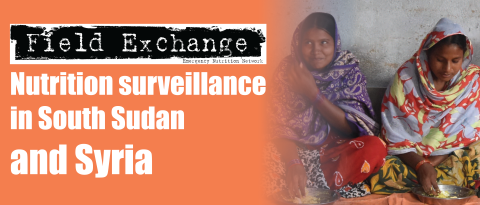Practical pathways to integrate nutrition and water, sanitation and hygiene
Research snapshot1
Interviews were undertaken in Cambodia, Ethiopia and Madagascar and results analysed alongside research and experience of multiple agencies to highlight common entry points for governments and development partners to take integrated action on water, sanitation and hygiene (WASH) nutrition. Results highlighted the need to target WASH interventions to undernutrition hotspots (‘convergence’ or ‘co-location’); promote the integration of key hygiene behaviours in nutrition interventions; prioritise mothers, newborns and young children as targets for WASH interventions; deliver a minimum package of health, nutrition and WASH services and messaging; strengthen capacity and resourcing of service-delivery platforms and frontline health workers; and ensure regular vertical and horizontal coordination meetings between nutrition stakeholders from local to national levels. Seven pathways to the success of integration efforts are identified (summarised in Box 1) and illustrated by country examples.
Box 1: Pathways to success
- Leadership: Secure the highest-level leadership, from the prime minister or president, to drive cross-ministerial coordination and hold line ministries to account for integration of WASH and nutrition.
- Policies: First, ensure national and regional development plans take a multisector approach to integrating nutrition and WASH interventions, aiming to improve child nutrition. Second, ensure specific policies for nutrition and WASH are coordinated and cross-refer to one another.
- Financing and strong government systems: Fully finance national WASH and nutrition plans, with clearly defined financing strategies across ministries that support better coordination.
- Data: Governments and donors must prioritise investments in data systems to enable effective targeting and prioritisation, and reliable monitoring.
- Sub-national coordination: Replicate strong national coordination mechanisms at sub-national level, ensuring 360-degree accountability.
- Knowledge sharing: Local authorities, civil society organisations, non-governmental organisations and donors should prioritise documenting and sharing knowledge and experience from integrated WASH-nutrition projects to support governments to adopt and scale up models that work.
- Accountability: Ensure transparency and accountability: this is key to driving multisector approaches.
Endnote
1WaterAid and Action Against Hunger (2019). Practical pathways to integrate nutrition and water, sanitation and hygiene. Available at washmatters.wateraid.org/practical-pathwaysnutrition- wash


